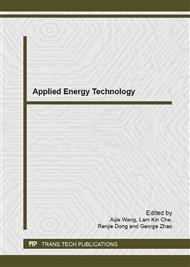p.1355
p.1361
p.1366
p.1374
p.1379
p.1383
p.1389
p.1393
p.1398
The Economic Benefit of Electric Taxi Based on Total Ownership Cost Model
Abstract:
To analyze the economic benefit of electric taxi in two different models: battery charging model (ETC) and swapping model (ETS), this paper built total ownership cost model based on purchase and used cost, and equaled the total ownership cost of electric and conventional taxi in the nominal lifetime to get the maximum affordable battery charging price and battery swapping price respectively, which is 1.1 RMB yuan/kWh and 0.54 RMB yuan/km. The results show that ETS has economic advantage over ETC. Adjust the charging and swapping price to 0 RMB yuan, the equilibrium year of ETS is only 0.8 years, compared to ETCs 2.8 years.
Info:
Periodical:
Pages:
1379-1382
Citation:
Online since:
August 2013
Price:
Сopyright:
© 2013 Trans Tech Publications Ltd. All Rights Reserved
Share:
Citation:


